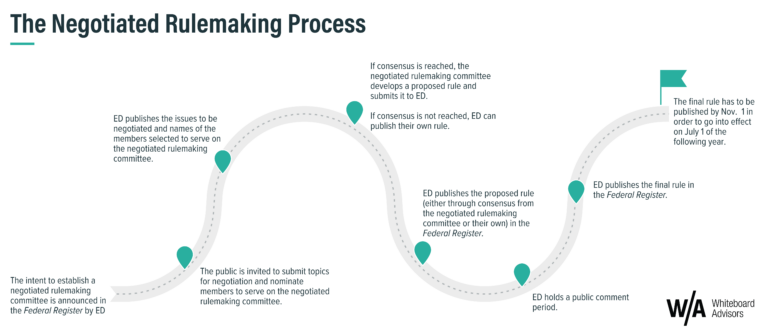Are you heading to Austin for SXSW EDU next week? The W/A team will be there! Drop us a line, or join us for some good discussion. If you’re looking for panel recommendations, here’s where you’ll find our team:
Monday, March 9, 2020
- Mapping the EdTech Genome: What Works Where & Why: More than $13 billion is spent on edtech each year — but 85% of it is wasted on tools that are either poorly implemented or a poor fit for the context. The EdTech Genome Project, launched in 2019 as a massive, sector-wide initiative, is discovering how to help districts and schools make wiser edtech decisions. Learn from members of the diverse team that is leading this groundbreaking work as, for the first time, they share the group’s early findings and seek audience feedback.
- Unlocking Opportunity for Incarcerated Learners: Today, 2.2 million people sit in prisons or jails. 95 percent will be released someday — and those who receive education behind bars are up to 43 percent less likely to re-offend. The retributive criminal justice system has failed, but smart state investments in education facilities, instructors, and technologies can prepare inmates for post-release success and begin to close prisons’ revolving door. Come hear how the renewal of prison education is uncovering the potential of millions of learners.
- 20 Policy Issues, 50 States: What’s Ahead for 2020: In 2019, every governor who delivered a State of the State address mentioned an accomplishment or a proposal related to education. Nearly all governors have indicated the importance of education to their state’s success. Join us for a discussion on how issues ranging from early childhood education to workforce development are trending across the states, and what the future holds as we look to the 2020 elections and beyond.
- The Politics of Higher Education: Election 2020: There has never been a generation of students as diverse as those pursuing postsecondary education today. How well are their needs reflected in the campaign platforms of 2020 candidates? Is higher education reform a winning issue at the ballot box; how are political crosswinds affecting the landscape for higher education policy reform? Beyond political slogans and bumper stickers, does higher education policy have a chance to break through the noise of the 2020 political landscape?
- Student Reflections: Belonging in Higher Ed: Higher education is proven to correlate with better health, higher earnings, and greater job security; however, research shows that gaps in degree attainment persist for students from under-resourced communities. The goal of this session is to elevate students’ perspectives on how a sense of belonging in college impacts their ability to succeed. During this session, a panel of current students will discuss how colleges can create an environment that is supportive of underrepresented students.
Tuesday, March 10, 2020
- Democratizing Early Literacy Through Innovation: Developing literacy skills during early childhood is a critical foundation to later student success in school and life, but literacy remains a challenge for millions of children around the world. This session will explore how advances in learning science and emerging technologies are creating new opportunities to improve how young children acquire literacy and language skills through state of the art “invisible” assessments and screening tools.
- How to Innovate & Improve Your Campus at No Cost: How can you help your campus improve when you lack resources, time, and energy? Surprisingly, there is a LOT you CAN do, questions you can ask, and creative ways to look at your challenges- and each of these tips will help your campus better support new ideas, unpack learning, be more creative, and see the system for how it really is. Come learn what we have discovered after 6 years of helping the most innovative colleges make dramatic student success progress.
- The New Geography of Skills: While many geographic regions are experiencing job growth in common industries, the skills needed to fill those jobs are not necessarily the same. This session takes a look at which skills are in highest demand within different regions of the US and discusses how employers and higher ed can work together to build their local talent pipelines.
- Making Good on the Promise of Brown v. Board: Sixty-five years after the Supreme Court outlawed segregation in Brown v. Board, our schools are still separate and unequal. And so are our classrooms. Any focus on combating segregation must account for the inequities present even when students of different racial backgrounds learn in the same classrooms. Join this panel of advocates for a discussion on how teachers and schools can counter bias and injustice to build pathways to opportunity for all students in the modern classroom.
- Stand & Deliberate: Civil Discourse in Education: Recent polls show a majority of Americans believe our country has a major civility problem—and it’s getting worse. Thoughtful conversation and debate within and about public education has a critical role to play bridging differences and closing divides. A current district superintendent, former state chief, ed reformer, and NPR national correspondent get real about the past, present, and future of civil discourse in education at every level from classroom to Congress.
Wednesday, March 11, 2020
- Hacking Diversity in Education Leadership: Education leadership today, from the classroom level through superintendency, does not reflect nearly the same depth of diversity as our student population—in race, gender, or grade level teaching background. Educators of every race, gender, and level are invited to this interactive & collaborative forum on diversifying education leadership. Through the workshop, we will collectively generate policy and practice recommendations for distribution to policymakers and the broader education community.
- Will Speech Technology Transform Education?: The explosion of popular virtual assistants – such as Alexa and Siri – are sparking increased interest in the potential for speech technology in the classroom. This session brings together speech technology pioneers who will explore how speech technology is being (and can be) used in the EdTech space to revolutionize, and expand access, to transformative student learning experiences, while also ensuring the privacy of student information.
- Unstuck in the Middle: Building a Skills Spectrum: “Middle skills” is a misnomer. The landscape of opportunities between the high school diploma and the bachelor’s degree is broad, complex—and makes up the majority of the US labor market. But millions of workers trained to the middle-skill level remain locked out of the labor market because of employers’ all-or-nothing approach: jobs either require a degree or they don’t. This panel will make the case that considering skills along a spectrum can unlock new pathways to economic opportunity.
- K-12 Entrepreneurship: From 2010 to 2020 & Beyond: The 2007 piece “Slow Entry, Distant Exit,” argued that the leading barrier to entrepreneurship in K–12 was lack of investment. Times have changed! In 2020, edtech is booming, fueled by record-setting VC and PE investment. In this talk, the speakers look to the future again, discussing how entrepreneurs can break through the fragmentation and clutter by leveraging systemic shifts, solving real educational problems, and partnering for shared success.
- Whole Child & Dual Language for Young Learners: Nationwide, young dual language learners comprise about 23% of the preschool-aged population. High quality early learning experiences for DLLs require developmentally appropriate practice, as well as the use of intentional and research-based supports for developing English and maintaining home language. This session offers an asset-oriented approach to embracing DLL strengths, needs, and identities in the critical early years.
- Talent Management in the Age of Teacher Shortage: When teacher shortages have reached crisis levels in many parts of the country, talent management is more important than ever for our education system to maintain and grow an effective, diverse workforce. A former state chief, a current district administrator, and a researcher share their expertise on: unintended impacts of common hiring practices like seeking “cultural fit,” successes and pitfalls of performance-based compensation, and new data showing trends in educator evaluation over the past five years.
Thursday, March 12, 2020
- Hacking Tech’s Equity Gaps: Technology is transforming every facet of modern life, automating millions of jobs while simultaneously creating brand new career paths. Minority and low-income communities at most risk of displacement are least able to access emerging tech skills. Meanwhile, tech is facing a massive talent shortage. Could a win-win solution lie in the classroom? Join this panel of social entrepreneurs to learn how new education models can forge pathways to the tech economy for historically excluded groups.
- The Case for Employer-Funded College: Employers that build affordable education pathways for a diverse workforce drive powerful recruitment, retention, and talent development results, while helping workers find career satisfaction and mobility. This session will surface new research that builds an obvious business case for employer-funded college, and give real-world examples of how companies can use education benefits as a strategic tool for upskilling in the future of work.



